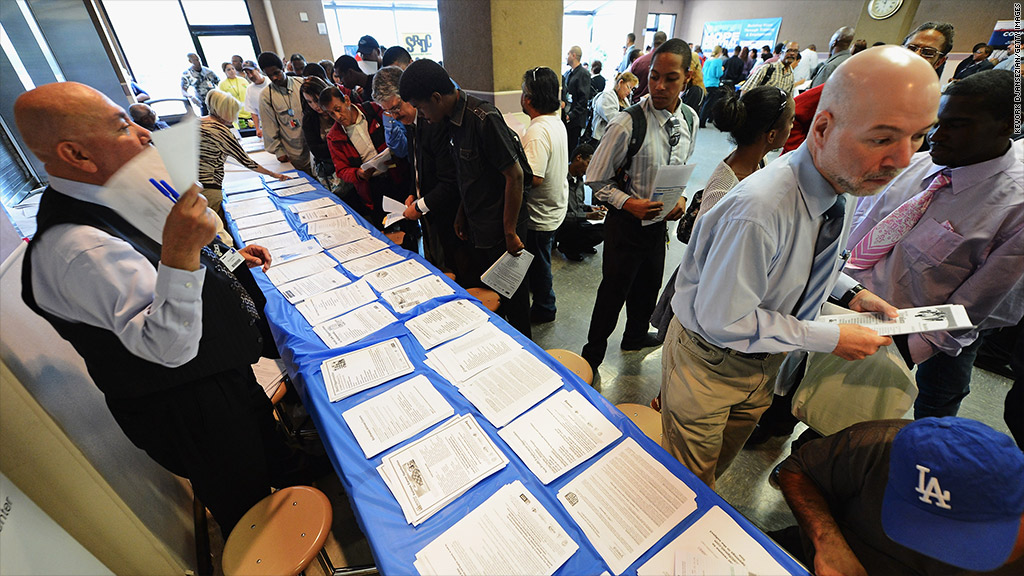Jobless Americans have collected more than half a trillion dollars in benefits over the past five years.
State and federal unemployment insurance programs have cost roughly $520 billion, according to a Congressional Budget Office report released Wednesday.
The price of continuing this safety net will be the subject of intense debate in Congress as lawmakers decide whether to extend the deadline to file for federal benefits beyond year's end as part of the fiscal cliff negotiations. Extending federal jobless insurance next year could cost as much as $30 billion, according to the CBO analysis.
The federal government has spent far more on unemployment insurance in recent years than it had in previous economic downturns because of the unprecedented response to the Great Recession. Federal benefits were extended to a record 99 weeks in November 2009. That safety net was extended multiple times until this year, when Congress extended the deadline to file but shortened the duration the jobless can receive checks.
Here's how it works now: The jobless generally receive up to 26 weeks of state benefits and then shift to federal emergency unemployment compensation, which is broken into four tiers and lasts up to 47 weeks. There is a separate federal extended benefits program, which provides up to 20 weeks, but only New Yorkers are eligible for it at this time.
CBO looked at four extension options and estimated the cost of each.
--Fully extending both federal programs for a year, which carries a price tag of $30 billion.
--Providing up to 14 more weeks of federal emergency benefits at a cost of $14 billion.
--Allowing recipients to finish receiving the benefits left in their tier at the end of the year, which would cost $4 billion.
--Lengthening the current extended benefits program by a year for a price of $3 billion.
The agency also highlighted the effect of once again extending unemployment benefits. While it would provide greater protection for those who lose their jobs and allow them to continue spending, it also provides an incentive for recipients to stay unemployed longer than they otherwise would have.
Extending the programs for a year would also boost the economy $1.10 for each dollar of cost since the recipients would soon spend those funds. GDP would rise by 0.2% and 300,000 jobs would be added, according to CBO.
Related: Facebook launches job search app
Federal checks are scheduled to stop at the end of the year, forcing lawmakers to decide whether they want to extend the filing deadline for the tenth time since the Great Recession began five years ago.
More than 2 million jobless Americans will lose their federal unemployment insurance during the holidays if Congress doesn't extend the deadline to file for additional benefits. And another 1 million who exhaust their state benefits will not be able to sign up for the federal program in the first quarter of 2013, according to the National Employment Law Project, an advocacy group. It argues that benefits should not end as long as the unemployment rate remains stubbornly high at 7.9%.



